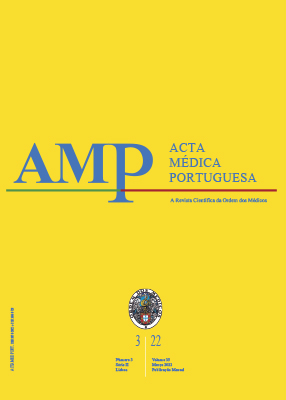Endocrinopathies Associated with Immune Checkpoint Inhibitors
DOI:
https://doi.org/10.20344/amp.13673Keywords:
Antineoplastic Agents, Immunological, Endocrine System Diseases, Immune Checkpoint Inhibitors, Programmed Cell Death 1 ReceptorAbstract
Introduction: Immune checkpoint inhibitors (ICIs) are monoclonal antibodies that increase the efficiency of the immune system in the destruction of neoplastic cells. In recent years, these drugs have been increasingly used in the treatment of many neoplasms in advanced stages. However, the change in the regulation of the immune system induced by these drugs has the potential adverse effect of inducing autoimmunity in practically all organ systems. Endocrinopathies are one of the most common autoimmune adverse eventsof these drugs.
Material and Methods: Non-systematic review of endocrinopathies reported in the context of treatment with ICIs. A search was carried out on PubMed until January 31st, 2020, and articles were selected based on their relevance and excluded in case of redundant content. The following search terms were used: “immune checkpoint inhibitor” and “endocrinopathy” / “endocrine system diseases” / “pituitary” / “thyroid” / “diabetes” / “adrenal” / “parathyroid”.
Results: Endocrinopathies with all classes of ICIs (anti-CTLA-4, anti-PD-1, anti-PD-L1) have been reported. Thyroid dysfunction is the most frequently reported endocrinopathy, mainly with anti-PD-1 and anti-PD-L1. Hypophysitis is the most prevalent with anti-CTLA-4. The incidence of autoimmune diabetes in this context is increasing, mainly with anti-PD-1 and anti-PD-L1. Rare cases of primary adrenal insufficiency, Graves’ disease and primary hypoparathyroidism have also been reported.
Conclusion: Knowing the spectrum of endocrinopathies triggered by ICI, as well as their clinical features, diagnosis and treatment criteria is essential, given its high prevalence and the increasing number of cancer patients treated with these new drugs.
Downloads
Downloads
Published
How to Cite
Issue
Section
License
Copyright (c) 2022 Acta Médica Portuguesa

This work is licensed under a Creative Commons Attribution-NonCommercial 4.0 International License.
All the articles published in the AMP are open access and comply with the requirements of funding agencies or academic institutions. The AMP is governed by the terms of the Creative Commons ‘Attribution – Non-Commercial Use - (CC-BY-NC)’ license, regarding the use by third parties.
It is the author’s responsibility to obtain approval for the reproduction of figures, tables, etc. from other publications.
Upon acceptance of an article for publication, the authors will be asked to complete the ICMJE “Copyright Liability and Copyright Sharing Statement “(http://www.actamedicaportuguesa.com/info/AMP-NormasPublicacao.pdf) and the “Declaration of Potential Conflicts of Interest” (http:// www.icmje.org/conflicts-of-interest). An e-mail will be sent to the corresponding author to acknowledge receipt of the manuscript.
After publication, the authors are authorised to make their articles available in repositories of their institutions of origin, as long as they always mention where they were published and according to the Creative Commons license.









